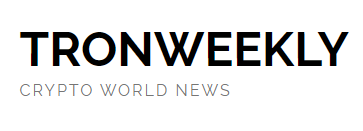You are here: Home / News / Anti-CBDC Bill Passes U.S. House Financial Services Committee

April 4, 2025 by Mwongera Taitumu
- House panel passes Anti-CBDC bill, blocking Fed from direct services.
- Stablecoin bill clears committee with bipartisan support; Trump ties raised.
- U.S. debates digital currency future with global CBDC developments.
The United States House Financial Services Committee voted 27-22 to pass the Anti-CBDC Surveillance State Act (H.R. 1919). House Majority Whip Tom Emmer initiated the bill, which seeks to prevent central bank digital currency (CBDC) from monetary policy use and bars Federal Reserve banks from providing direct services to the public. The CBDC adoption has sparked public concerns about potential government surveillance practices and privacy risks.
The anti-CBDC bill represents increased public concerns about potential surveillance of financial transactions. According to Emmer, the legislation ensures American citizens maintain control over U.S. digital currency policies away from the government. Emmer stressed that the legislation protects American values of individual sovereignty, free-market competition, and privacy because it invalidates claims that CBDCs could reduce political and financial freedom.
Emmer’s anti-CBDC bill, H.R. 5403, passed through the committee and the House in 2024 but stalled in the next stage. The updated version of the bill, H.R. 1919, echoes President Donald Trump’s position on digital assets. Trump’s executive order aims to protect U.S. citizens from potential CBDC threats on financial stability, individual privacy, and national sovereignty.
Democrats Oppose Anti-CBDC Bill
Democratic lawmakers have opposed the bill because they believe a CBDC ban could disrupt innovation and diminish the U.S. dollar’s status as the global reserve currency. Representative Maxine Waters opposed the bill and warned that the proposal could weaken the U.S. position in digital payment markets. She argued that financial technological innovation should not be restricted due to concerns about government intervention.
The Atlantic Council’s CBDC tracker indicates that major global economies, including 66 countries, are in advanced stages in the exploration or development of CBDCs. The supporters of the bill state that its acceptance would stop the U.S. from trailing behind other countries in digital finance. However, Democrats have expressed concerns about the effects of the anti-CBDC bill on economic stability and geopolitical position.
Stablecoin Legislation
Apart from the anti-CBDC bill, the committee advanced legislation to regulate stablecoins. The Stablecoin Transparency and Accountability for a Better Ledger Economy (STABLE Act) aims to establish a framework that fosters the growth of dollar-pegged stablecoins. This bill seeks to establish clear regulations to boost global stability in the stablecoin market.
The stablecoin legislation has attracted bipartisan support despite Democratic objections about President Trump’s influence in the stablecoin market. Democrats criticize Trump’s involvement in crypto businesses such as World Liberty Financial’s stablecoin USD1 and NFT sales. Republican committee members denied the concerns and pointed out that the proposed bill aims to develop effective industry regulations.
The committee proceeded with other forms of crypto-related legislation, such as initiatives to combat illegal crypto activities. The push to establish cryptocurrency regulations continues to gain momentum despite political contentions. The anti-CBDC bill and the stablecoin regulation bill now head to the upper House for deliberation.
.

 22 hours ago
12
22 hours ago
12









 English (US) ·
English (US) ·